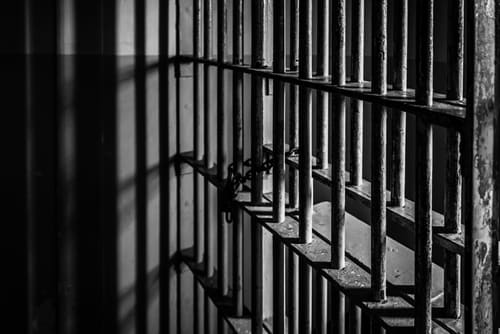TELEPHONES ANSWERED 24 HOURS A DAY
How Does Federal Bail and Pretrial Release Work?
 If you have been arrested for a crime, you will be held in police custody until you appear before a judge. While if you were arrested for a state crime you would be released on bail, the federal court system has pretrial release for criminal defendants.
If you have been arrested for a crime, you will be held in police custody until you appear before a judge. While if you were arrested for a state crime you would be released on bail, the federal court system has pretrial release for criminal defendants.
If you have been arrested for a federal crime, the first call you make should be to a Chicago federal criminal lawyer.
Overview of Pretrial Release
Our legal system is based upon the presumption that a person is innocent until proven guilty. Unless there is a reason to detain a defendant, the federal court system will release an individual prior to trial.
The pretrial release program does not use bail, bonds, or bondsmen. Rather, a federal judge has to decide whether to release or detain a defendant following their arrest. A judge has the option to grant any of the following:
Release the Defendant on Personal Recognizance/Unsecured Appearance Bond
If the accused has little or no criminal history and is not considered a flight risk, the court may release the defendant. The defendant generally has to sign a written promise to appear in court.
Release the Defendant on Conditional Release
The defendant may be released under certain conditions. These conditions are discussed later on.
Temporarily Detain the Defendant
The court does have the option to temporarily detain the defendant for ten days before trial. Temporary detention is required if the defendant was on pretrial release, probation, or parole at the time of committing the crime.
Detain the Defendant Before Trial
If the court determines that a defendant is at risk of fleeing or poses a danger to someone else, the defendant will likely be detained prior to their trial. Studies show higher conviction rates for defendants detained prior to trial. That being said, an experienced Chicago federal criminal lawyer is key to protecting your freedom.
What is a Detention Hearing?
The court may hold a detention hearing to decide whether or not to grant a defendant pretrial release. At the detention hearing, the defense lawyer and prosecutor will present evidence and argue their case. Witnesses will be called on to testify.
The Bail Reform Act of 1984 requires that detention hearings be held for the following offenses:
-
Violent crimes
-
If the offense is punishable by life in prison or the death penalty
-
A narcotics offense that is punishable by a minimum of ten years in prison
-
Any crime that is committed after two or more offenses requires a detention hearing
Pretrial Release Conditions
In accordance with the Bail Reform Act of 1984, a defendant must adhere to the following release conditions:
-
Maintain a job or continue to attend school
-
Avoid contact with an alleged victim or potential witnesses
-
Report to law enforcement or pretrial services agency
-
Comply with a curfew
-
Refrain from using a gun, taking illicit substances, or consuming alcohol
-
Undergo medical treatment
-
Forfeit property if failing to appear in court
-
Return to police custody when directed
Arrested for a Federal Offense? Speak with Our Chicago, IL Federal Criminal Lawyer Today
From the moment you are arrested, you need representation on which you can depend. With two decades of experience, our Chicago, IL federal criminal lawyer has been achieving positive case outcomes for defendants just like yourself. To schedule your free case consultation, contact the Law Offices of Hal M. Garfinkel LLC, Chicago Criminal Defense Attorney online or by calling 312-629-0669.




